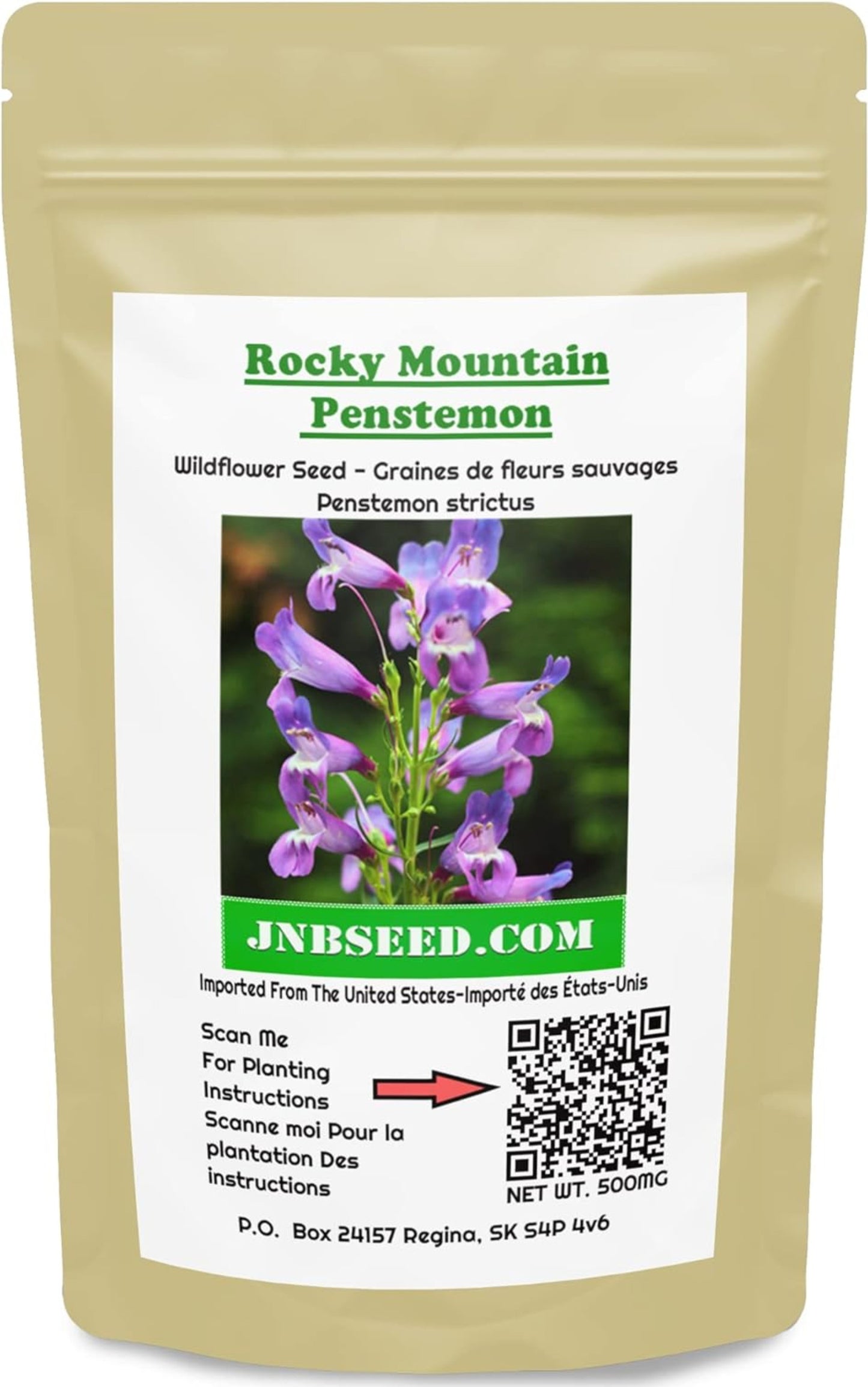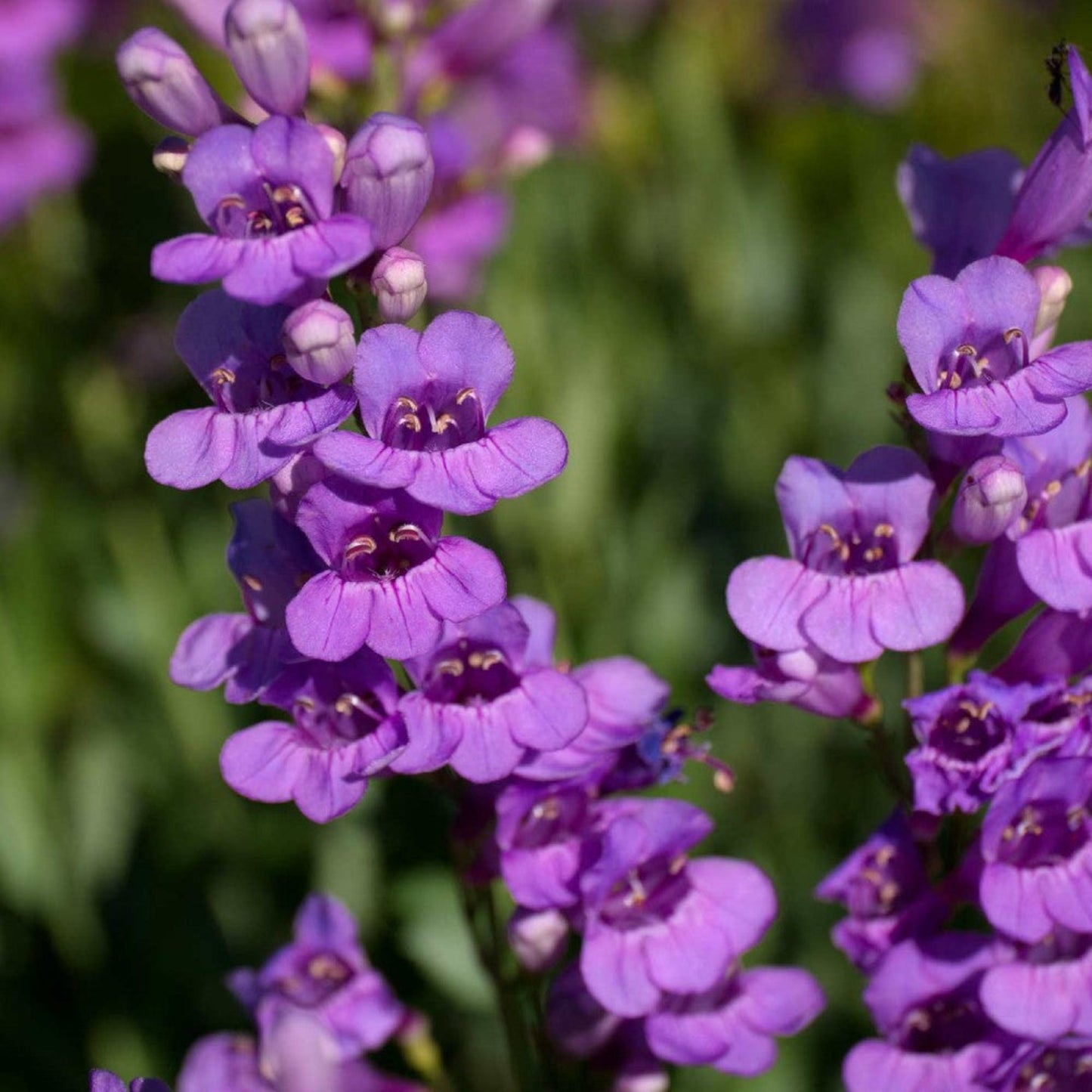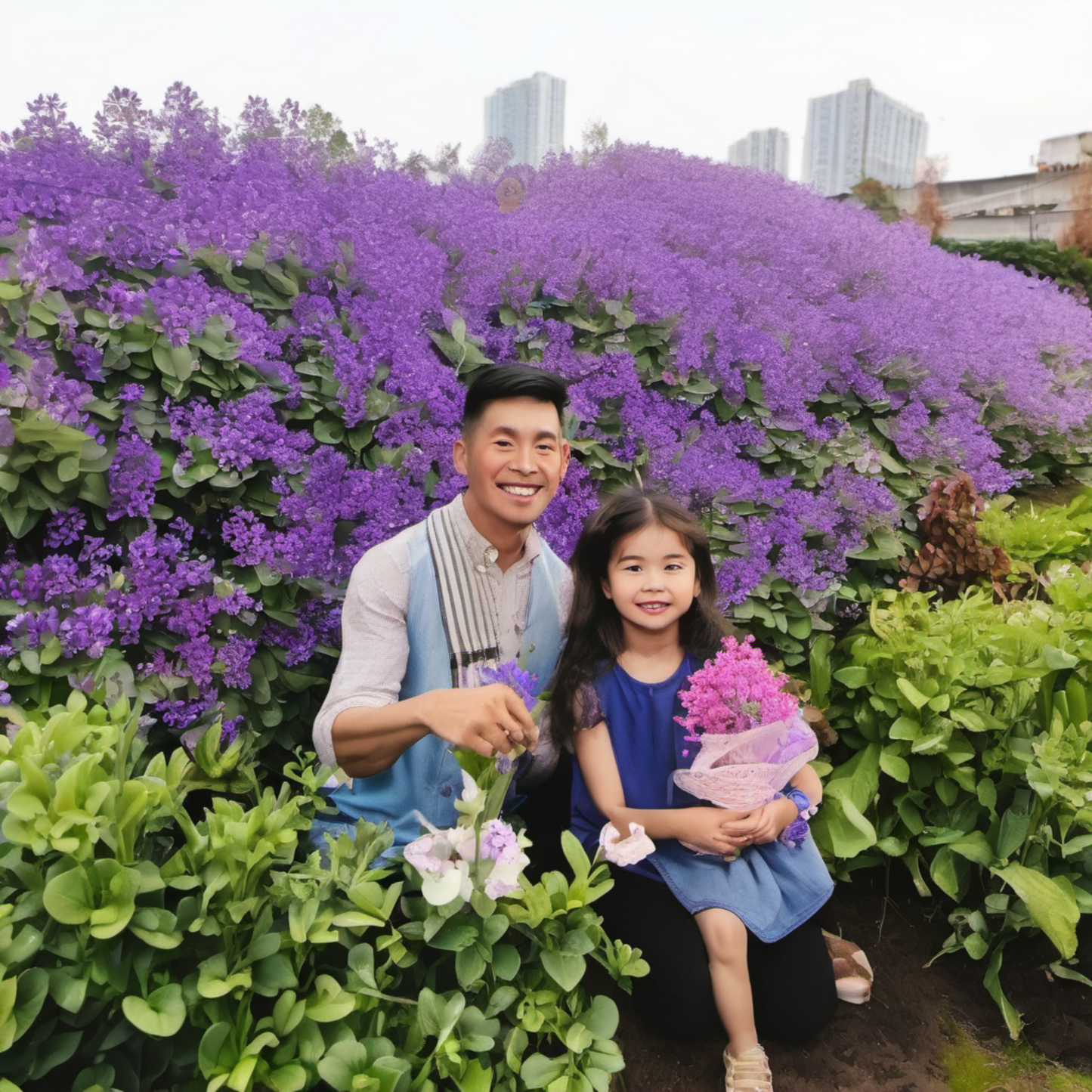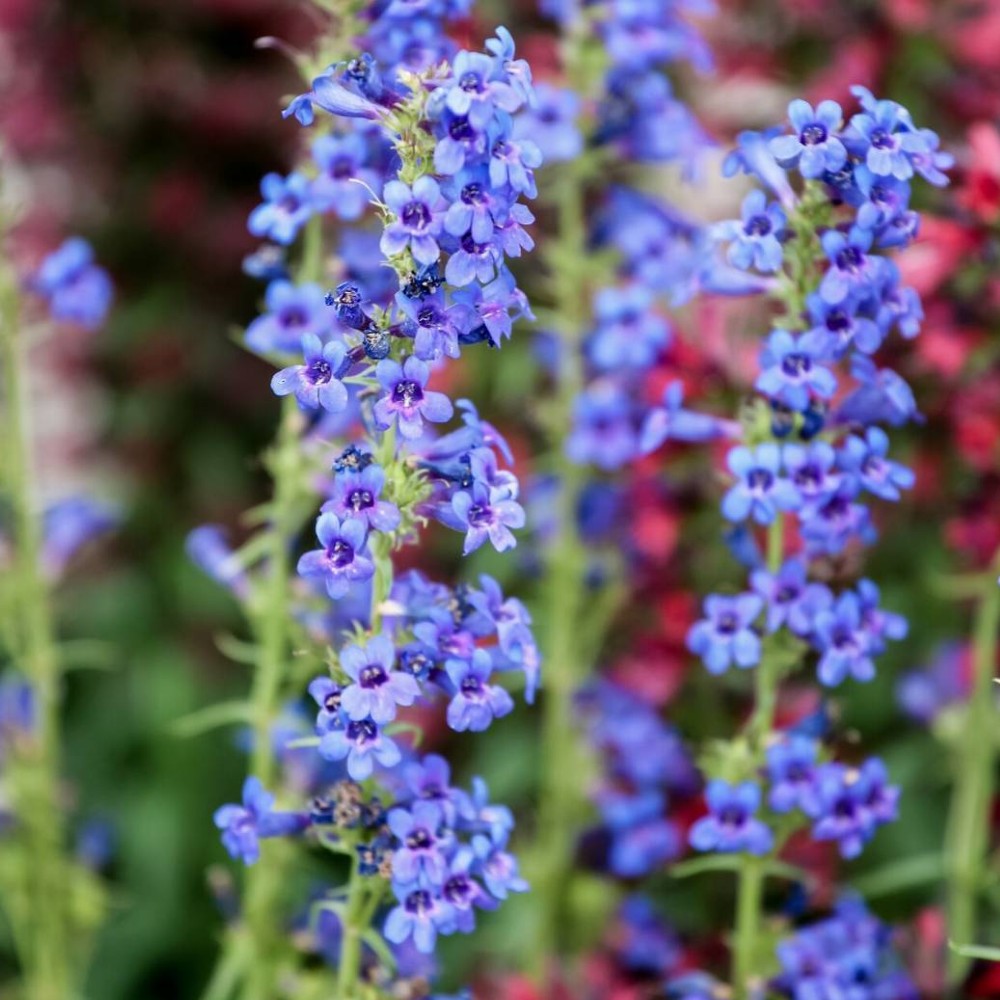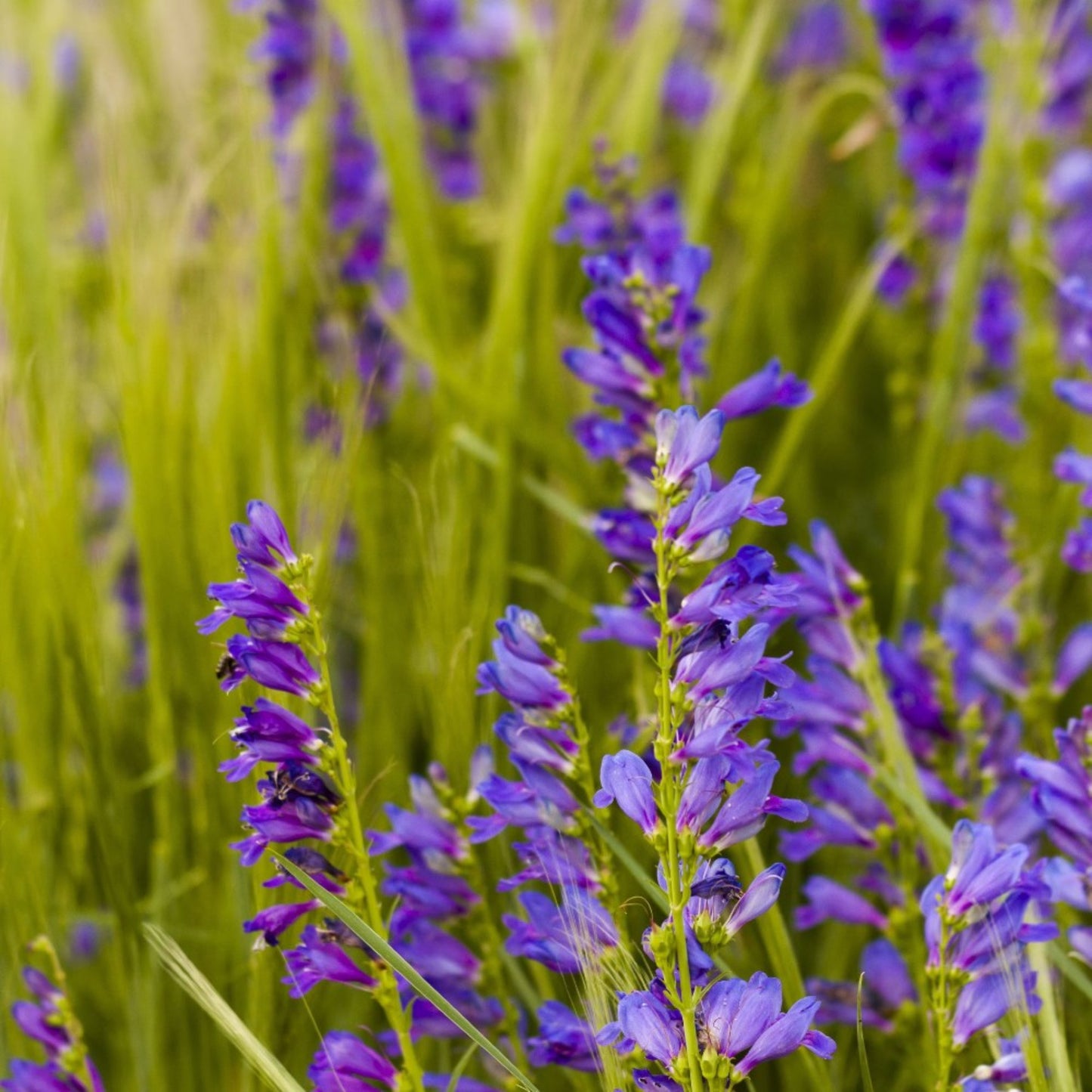JNB Seed
Rocky Mountain Penstemon Flower Seeds
Rocky Mountain Penstemon Flower Seeds
Couldn't load pickup availability
The tall spikes of vibrant indigo blossoms found in this Penstemon variety make it a standout within its family. Originating from the Rockies, this species thrives in a diverse array of garden environments throughout much of the United States. Its striking appearance not only captivates human observers but also attracts a myriad of insects to your garden, adding to its allure.
In the 18th century, American botanist John Mitchell provided the first recorded botanical description of this plant genus. Carl Linnaeus, a renowned Swedish botanist, later included it in his seminal work Species Plantarum in 1753. Legend has it that Native Americans once utilized this plant for its versatile medicinal properties, showcasing its significance in traditional herbal medicine. The unique common name of this plant stems from the presence of a fuzzy "tongue" within each open bloom, resembling a mouth and tongue. The genus name "Penstemon" is derived from Greek words denoting "five threads," alluding to the characteristic stamens of each blossom. Additionally, the species name "strictus" signifies "stiffness," reflecting certain structural qualities of the plant.
Share
How To Grow
How To Grow
Sowing: Plant directly into the soil's surface in late autumn, as these seeds require light for germination. Alternatively, for spring planting, mix the seeds with moist sand and refrigerate for 30-60 days before sowing. Keep the soil lightly moist until germination. Indoor starting is also an option, 6-8 weeks prior to spring planting.
Growing: Ensure seedlings are watered until they establish themselves. This plant has a slow development, typically blooming in its second year. Mature plants are resilient to drought but benefit from occasional watering during dry spells. After blooming, trim the plant back to several inches above the soil unless seed collection is desired. Avoid overwatering to prevent root rot. If seed production isn't desired, prune the plant after blooming. It often self-sows and attracts bees, hummingbirds, and butterflies.
Harvesting
Harvesting
Select stems with freshly opened flowers for cut flowers. Remove foliage that will be submerged in water and place in water immediately.
Seed Saving
Seed Saving
Following flower fading, small pods will form, eventually opening at the top to expose ripe seeds. Gather seeds as soon as pods begin to open to prevent loss, as wind can easily carry them away. Store seeds in a cool, dry place.
Extra Facts
Extra Facts
Latin Name: Penstemon strictus
Species Origin: US Native Wildflower
Type: Native Wildflowers
Life Cycle: Perennial
USDA Zones: 3, 4, 5, 6, 7, 8
US Regions: Mountain, Arid/Desert
Sunlight: Full Sun, Part Sun
Height: 76.2 centimeter
Color: Blue
Bloom Season: Blooms Late Spring, Blooms Early Summer
Uses: Attracts Pollinators, Hummingbirds, Cut Flowers, Deer Resistant
